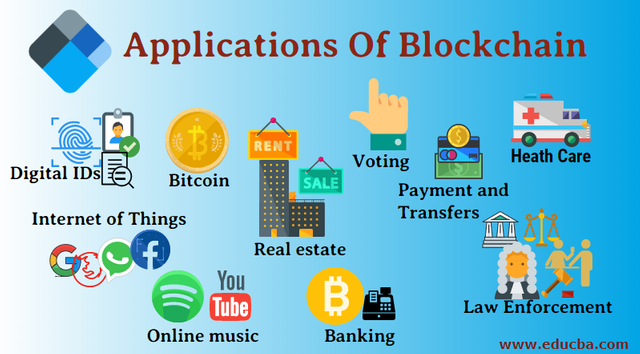Introduction:
Blockchain, often hailed as a revolutionary technology, has emerged as a disruptor across various sectors, promising unparalleled security, transparency, and efficiency. Originally conceived as the underlying technology for Bitcoin, its potential extends far beyond cryptocurrencies. This essay delves into the intricacies of blockchain technology, its fundamental principles, applications across diverse industries, and the transformative impact it has on the global landscape.
Fundamentals of Blockchain Technology:
At its core, blockchain is a decentralized, distributed ledger technology that records transactions across a network of computers in a secure and immutable manner. Each transaction, or "block," is cryptographically linked to the previous one, forming a chronological chain. This decentralized structure eliminates the need for intermediaries, such as banks or clearinghouses, ensuring transparency and reducing the risk of fraud or manipulation.

Key features of blockchain include:
Decentralization: Unlike traditional centralized systems, blockchain operates on a peer-to-peer network, where each participant, or "node," maintains a copy of the entire ledger. This decentralized architecture enhances security and resilience, as there is no single point of failure.
Transparency: Every transaction recorded on the blockchain is visible to all participants in real-time. This transparency fosters trust among users and enables efficient auditing and verification of transactions.
Immutability: Once a transaction is added to the blockchain, it cannot be altered or deleted without consensus from the majority of participants. This immutability ensures the integrity of the data stored on the blockchain, making it tamper-proof.
Applications of Blockchain Technology:
While blockchain gained prominence as the technology powering cryptocurrencies, its potential applications span across a multitude of industries, including finance, supply chain, healthcare, real estate, and more.
Finance: In the financial sector, blockchain is revolutionizing processes such as cross-border payments, remittances, and asset tokenization. Smart contracts, self-executing contracts with the terms of the agreement directly written into code, automate complex transactions, reducing costs and minimizing errors.
Supply Chain Management: Blockchain enhances transparency and traceability in supply chains by recording every step of the product lifecycle, from sourcing raw materials to delivery to the end consumer. This visibility helps prevent fraud, counterfeit goods, and ensures compliance with regulatory standards.
Healthcare: In healthcare, blockchain facilitates secure sharing of patient data among healthcare providers while maintaining patient privacy and security. It also streamlines processes such as medical record management, prescription tracking, and clinical trials management.
Real Estate: Blockchain enables fractional ownership of real estate assets through tokenization, making it easier for investors to buy and sell property shares. Additionally, blockchain-based land registries enhance transparency and reduce the risk of property disputes.
Transformative Impact:
The widespread adoption of blockchain technology has the potential to reshape industries, streamline processes, and create new business models. By eliminating intermediaries, reducing costs, and enhancing trust, blockchain fosters innovation and unlocks new opportunities for economic growth and social development.
However, challenges such as scalability, interoperability, and regulatory uncertainty remain barriers to mainstream adoption. Addressing these challenges requires collaboration among stakeholders, technological advancements, and proactive regulatory frameworks.
Conclusion:
Blockchain technology represents a paradigm shift in how we perceive trust, transparency, and efficiency in the digital age. Its decentralized and immutable nature holds the promise of transforming industries, empowering individuals, and driving socioeconomic progress. As we continue to explore the vast potential of blockchain, it is imperative to embrace innovation, foster collaboration, and navigate the challenges to realize its full benefits.



